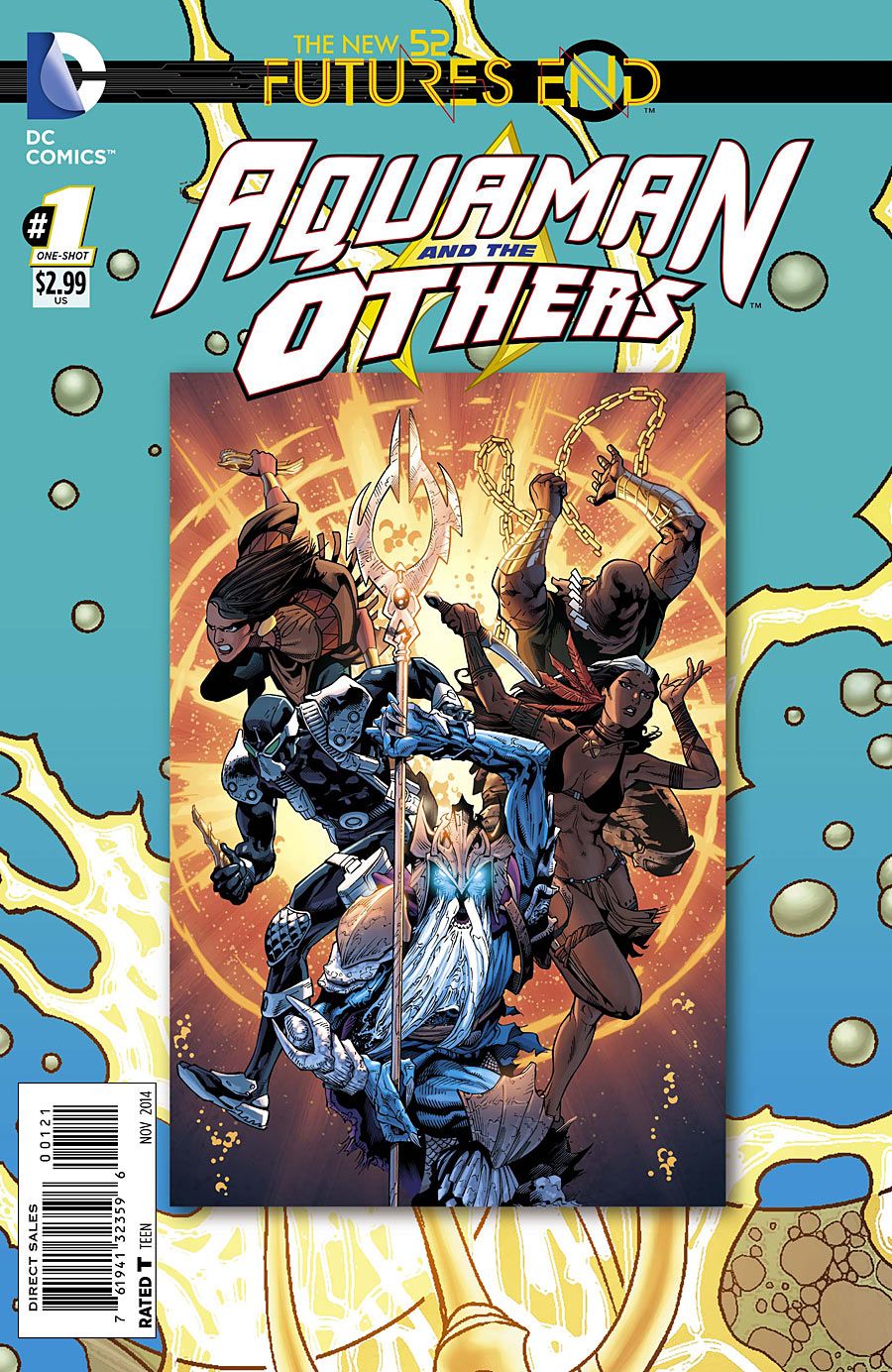Among the current "Futures End" titles, "Aquaman and the Others: Futures End" #1 holds a distinct advantage in that it presents a full story with a resolution. Jurgens gets to continue the plot that he began in "Aquaman: Futures End" #1, and he wraps up all of Arthur's problems neatly -- altogether too neatly, unfortunately. Though it's paced efficiently and drawn sharply, "Aquaman and the Others: Futures End" #1 is too easy, obvious and rushed.
This issue has smoother transitions and a clearer dramatic crescendo than "Aquaman: Futures End" #1. With the status quo established and the action underway, Jurgens' plotting is no longer as jumpy, and as a reader I really felt the difference. It's obvious where things are headed -- a climactic battle with Atlan, Mera and the other Atlanteans -- but Jurgens doesn't rest on that, and he ups the stakes at a steady clip. DC gave this storyline an extra issue, and he makes good use of that groundwork.
The Others' team dynamic is also well rendered. As they fight the Atlanteans, their different powers, perspectives and personalities are kept on display, and it not only gives Chen and Irwin more to work with, but gives the fight more flavor. That said, Jurgens' dialogue is relentlessly clunky. The characters have distinct personalities, but not distinct voices; everyone's syntax sounds the same. There are a lot of extraneous, obvious lines. Characters remind the reader of their backstories -- "He's the only father I've ever had" or "My people's history is proof of the cost of being pushed aside and isolated" -- in non-sequiturs that are either tangentially related to the problem at hand or so obvious that they don't need saying. These are characters speaking at each other, not with.
Sean Chen and Mark Irwin produce some solid artwork. Their thin pencils and inks make for readable, realistic faces, even when the character isn't in close relief. These faces add nuance and tension to Jurgens' awkward dialogue. Even a line like "Have we really come to the point where we can't agree on anything anymore?" is almost made effective. Matt Milla's colors complement this thinner, less detailed style nicely, and he lets shading step in where a more heavily inked book might have lines.
Chen's layouts are crisp, and aside from a few strange perspective choices, he creates strong, vivid battles. Because the script moves at such a clip, he isn't given much time for wider shots, so each panel has to do a whole lot of work establishing the spatial reality. He handles the challenge skillfully.
Now, I recognize that a story shouldn't have to match my politics to be satisfying, but "Aquaman and the Others: Futures End" #1 offers a deeply troubling takeaway. The plot is essentially about each member of a very diverse group sacrificing his or her own power to make a single white man more powerful, so that he might crush a popular revolution by beheading its leader. Disturbingly, this is put forward as some sort of resolution, the triumphant fulfillment of Aaron's destiny. As he beheads Atlan, Aaron -- who by his own admission "left to escape this [violence]" -- casually says, "Might seem extreme, but the price of peace often is." I just don't understand what message I am supposed to take from Aaron's transformation, except that violence is the answer, monarchy is always right, and one white man is a better hero than a diverse team. It just made me deeply uncomfortable.
All told, "Aquaman and the Others: Futures End" #1 is an enjoyable read. I wish it were less obvious and problematic, but with only two issues to tell an entire arc, the creative team has done well.

